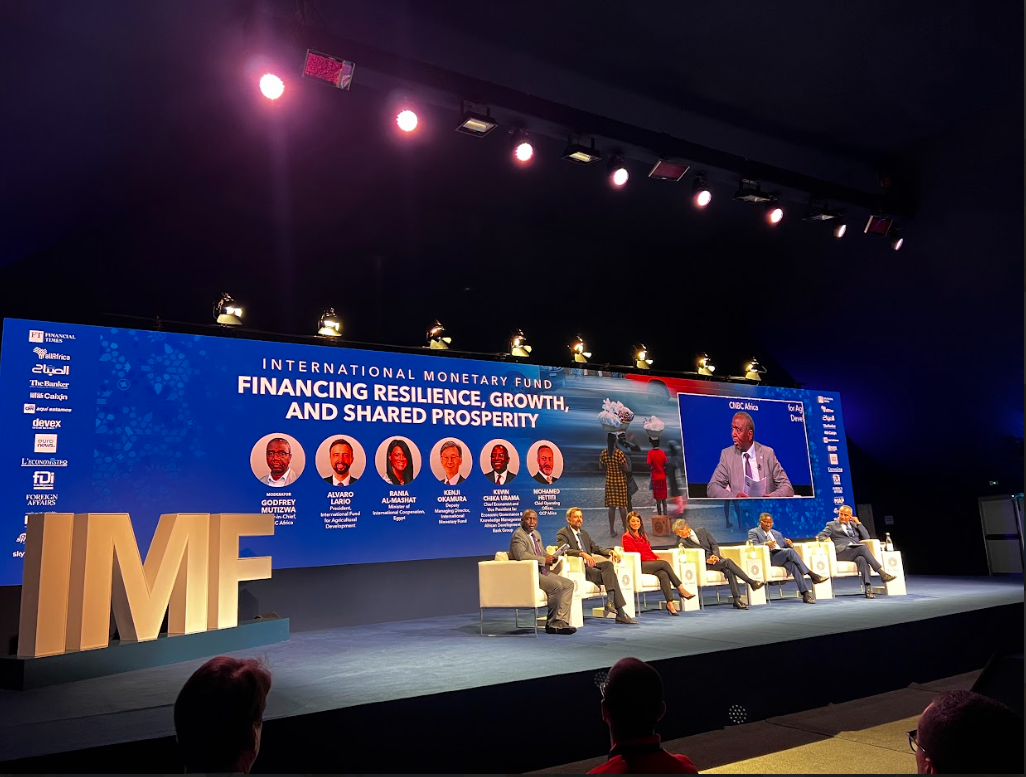Representatives of civil society meet with the president of the IDB to address challenges for sustainable and inclusive development in Latin America. At the meeting, recommendations were presented to the bank to strengthen the promotion of sustainable development in the region.
“Below, we offer a google translate version of the original article in Spanish. This translation may not be accurate but serves as a general presentation of the article. For more accurate information, please switch to the Spanish version of the website. In addition, feel free to directly contact in English the person mentioned at the bottom of this article with regards to this topic”.
25 civil society organizations from Latin America that are part of the IDB Working Group, among them Fundeps, met on Friday, November 10, with the president of the Inter-American Development Bank (IDB) Ilan Goldfajn, with the purpose of strengthening dialogue and identify opportunities to bring the institution closer to the populations of the region it tries to serve.
The representatives of civil society presented to President Goldfajn recommendations to strengthen the link with civil society and communities impacted by IDB projects and recommendations to consider in the IDB’s 2023-2030 Institutional Strategy, which is in the process of being prepared. President Goldfajn then opened the floor to listen to specific topics of interest from different member organizations of the group.
The IDB Working Group described the meeting as a positive sign from the bank’s new administration, in the sense of an openness and willingness to strengthen dialogue with civil society. The meeting with President Goldfajn follows a previous meeting that took place during the 2023 IDB Annual Meeting held in March in Panama, and a meeting with the IDB Country Vice President, Anabel González, during the Common Finance Summit that took place in last September in Cartagena de Indias, Colombia.
“These spaces for dialogue represent a sign of the bank’s rapprochement with civil society”, said Carolina Juaneda, from the Bank Information Center, coordinator of the Working Group on the IDB. According to Ivahanna Larrosa, regional coordinator of the Coalition for Human Rights in Development, “the general perception is that it was a good meeting to present our messages and move forward in improving the bank’s dialogue with civil society.”
Civil society representatives pointed out that the IDB Group’s 2023-2030 Institutional Strategy must promote a fair, community-based energy transition that puts people and the environment at the center. Other recommendations of the Working Group were that the bank: comply with the highest environmental and social standards and respect for human rights in its activities and the projects it finances, prioritizing and strengthening the implementation of the Environmental and Social Policy Framework (MPAS), and improving upstream planning to identify suitable projects; prioritizing quality investments, redoubling the principles of good governance, especially transparency, access to information, participation and accountability; strengthen your commitment to the impacted communities, guaranteeing comprehensive reparation to people; ensure a responsible exit from unsustainable projects and operationalize the commitment not to tolerate retaliation.
Civil society organizations seek substantive participation in the IDB Group Annual Meetings that will be held in March 2024 in the Dominican Republic. The opening of President Goldfajn and his team to work towards greater interaction of organizations and communities in the region, with the Bank’s administration and teams, is celebrated.
About the IDB Working Group
The IDB Working Group is a group of more than 60 civil society organizations, both from the region and internationally, that influence the IDB Group, promoting the highest environmental, social and human rights standards. supporting communities adversely impacted by projects financed by the bank. Some of its members have been working for three decades to strengthen the IDB’s processes of participation, transparency, access to information and respect for human rights.
More Information
- Inter-American Development Bank: public consultation for its new Institutional Strategy
- Open letter from civil society organizations to IDB President Ilan Goldfajn
Contact
Gonzalo Roza, gon.roza@fundeps.org

